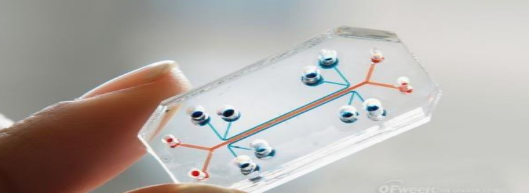Can the new plastic processor of the Internet of Things play a major role?
At the annual ARMTechCon technical seminar held in Silicon Valley, USA, Muller described the Cortex-M0 processor core implemented in plastic materials, at least comparable to ARM's early ARM-1, which attracted our special attention.

Organs-On-Chips, a plastic chip in the museum's permanent collection
It would be controversial to say that ARM is the most successful semiconductor company in European history. Judging by the company's profitability, it may not be (yet), but it can be considered in terms of global influence. Of course, it must be .
ARM's current achievements can be partly due to the rigor and focus on processor cores, software processing stacks, and gate and transistor architectures / structures that extend to software execution. What ARM hasn't done is to spend a lot of money on R & D competitions or to invest in startups-although some tech fan media journalists still want them to do so.
As the ARM company continues to grow and ICs become more complex--from the abstraction process that requires thinking about billions of transistors to quantum mechanical physics--plus the increasing variety of applications, the company's chief technology officer Researchers under Mike Muller have taken on more responsibility for pushing the industry forward, at least thinking about the question, "Where should semiconductor research and development go?"
Therefore, when Muller described the Cortex-M0 processor core implemented in plastic materials at the annual ARMTechCon technical seminar held in Silicon Valley in the United States last month, we should be at least comparable to ARM's early ARM-1. We should pay special attention .
We should also note that ARM has invested in at least one startup that locks in plastic logic technology, PragmaticPrinTIng. This new company was originally based in Manchester, England, and later moved to Cambridge, where ARM's headquarters is located.
Of course, the evolution of plastic processor cores will not be the same as silicon chips; plastic circuits will not have the same Moore's Law as silicon chips to boost transistor density. And the performance of plastic electronic components will not be as good as the same components made of silicon, but it may be sufficient for some Internet of Things applications (IoT).
Muller also described the Moore's Law of a plastic IC at the ARM Annual Technology Conference. It may not seem as fast as the current Moore's Law of silicon chips. The law has just begun.
If you want to know more, our website has product specifications for the plastic processor, you can go to ALLICDATA ELECTRONICS LIMITED to get more information

